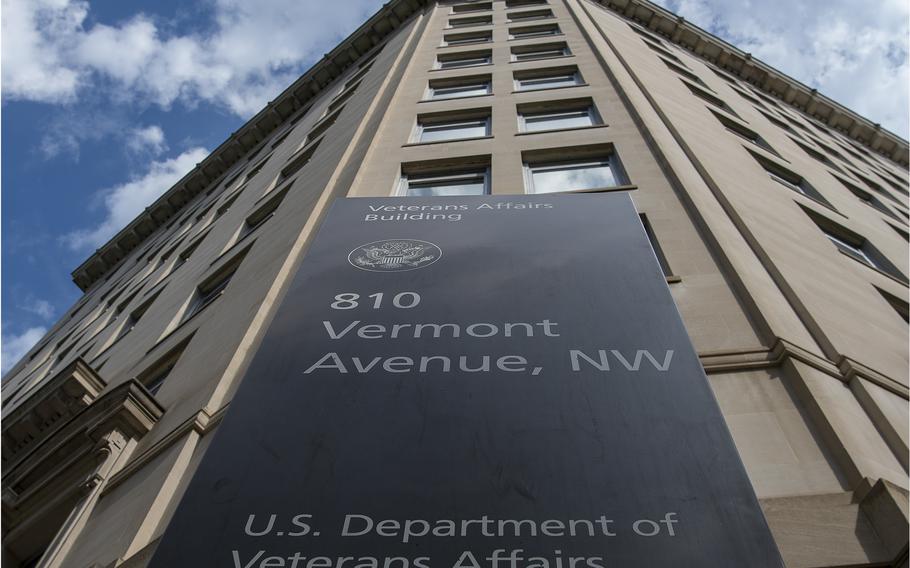
The Department of Veterans Affairs headquarters building as seen in Washington, D.C., on July 6, 2022. (Carlos Bongioanni/Stars and Stripes)
Over the last few years, it has been popular to criticize the Department of Veterans Affairs for not being responsive to the needs of veterans. I have found just the opposite to be true.
Like many people my age, my hearing isn’t what it used to be. A couple of years ago, Shirley, my wife, pretty much mandated that I get hearing aids. I got an appointment with a Kaiser audiologist who confirmed my condition and reviewed my options. “The good news,” he said, “is that Kaiser will pay $950 of the cost.”
“The bad news,” he continued, “is that the cost for the best hearing aids is $6,000.”
Then he asked a question: “Are you by any chance a veteran?” When I responded in the affirmative, he said, “Go to the VA; they may give you free hearing aids.”
I applied online to qualify for VA health care, and it was surprisingly quick and easy. Soon I had an appointment with a VA audiologist at the VA Clinic in Martinez, Calif., and soon after, my $6,000 hearing aids were on order. A couple months later, they were calibrated by the audiologist and turned over to me.
At first, I could function without them and frequently forget to wear them when leaving home.
But then, in late 2023, I experienced a rather sudden additional loss of hearing. The VA audiologist and ENT advised me that it may be reversible and put me on a 10-day regimen of Prednisone, sent me to the hyperbaric chamber at Travis Air Force Base Medical Center, and did an MRI. Alas, it did not help, and I am getting used to it. I can hear satisfactorily one-on-one or in small groups, on the telephone and in virtual meetings (captions really help). Restaurants and large groups, or anything with lots of background noise, however, just don’t work for me.
VA care is mostly free, but once I got a bill for a few dollars for medication. It noted that there would be no charge if my condition were deemed “service-connected.” I had heard so many horror stories about how difficult it was to qualify with the VA for a service-connected disability that I was reluctant to pursue it. But like my initial application for health care, I filled out a short online VA form.
Two months later, I had an interview and test with an audiologist. Within six weeks, I was notified that my hearing loss was deemed “service- connected,” and that I was granted an 80% disability evaluation. The decision stated: “Service connection for bilateral hearing loss has been established as directly related to military service. Service connection is warranted because your Military Occupational Specialty (MOS) of Combat Engineer is consistent with acoustic trauma and your hearing loss has been linked to that acoustic trauma.”
In the last two years, the VA has replaced one hearing aid that I lost on a plane trip to Los Angeles, provided a new set when there was an available upgrade, and quickly repaired malfunctions — twice.
The Audiology Clinic in Martinez offers a walk-in function where no appointment is required on any weekday morning. I have never had to wait more than about 15 minutes.
Beyond that, I have been impressed with how friendly, helpful and responsive everyone at the VA is. They always smile and say “Hi” when you pass them in the lobby or hallway and make you feel welcome.
So next time you hear someone complain about the VA, please remember that my experience has been much different.
Tom Butt is an Army veteran of the Vietnam War, an architect, and the former mayor of Richmond, Calif.